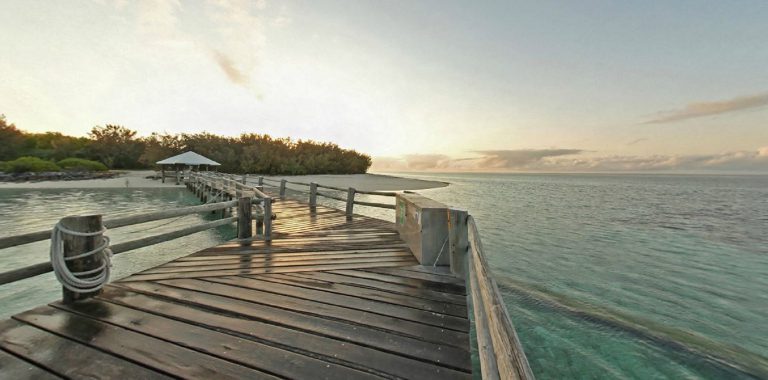
Do you want to work or study at world-class teaching and research facilities on tropical or sub-tropical islands surrounded by coral reefs and exotic fauna and flora?
Sounds impossible?
Not so, as one of the world’s top 100 ranked universities, The University of Queensland, Australia, operates two state-of-the-art marine research stations providing unique scientific opportunities for international researchers and students.
The University owns and operates the Moreton Bay Research Station on North Stradbroke Island near Queensland’s capital, Brisbane; and Heron Island Research Station, on the southern Great Barrier Reef, 80 km offshore from the city of Gladstone.
The University’s Faculty of Science and its island research stations aim to support fundamental advances in scientific research and provide advanced and interactive teaching programs for scientific minds.
The research stations encourage and facilitate national and international collaborations and welcome your enquiries.
Both stations are equipped with accommodation and state-of-the-art research laboratories and field facilities.
The Heron Island Research Station (HIRS) is internationally renowned for coral reef research and student training in marine sciences.
You will have access to facilities and equipment rarely found in an offshore facility.
These facilities, combined with the station’s enviable position on the world’s largest reef make it an ideal location for marine and climate change research.
Situated on the southern Great Barrier Reef, it is the oldest and largest marine research station on the Reef. With crystal clear water and near pristine conditions, the Station gives you easy and direct access to the marine environment.
The Station caters to Australian and international researchers and educational groups, offering modern wet and dry laboratories, indoor and outdoor aquaria, a large animal holding tank, separate research and teaching laboratories, seminar facilities, a library, computer room and extensive boating and diving facilities.
HIRS, the Queensland Parks and Wildlife Service (QPWS) and Heron Island Resort are the only inhabitants on the Island.
Watch a Heron Island virtual tour.
To get a flavour for some of the activities, watch a video on coral spawning at the Great Barrier Reef:
Moreton Bay Research Station is located on North Stradbroke Island, providing you with direct access to the waters of Moreton Bay and the Pacific Ocean as well as the unique terrestrial environments of the 27,700 hectare sand island.
North Stradbroke Island lies on the convergence of the eastern Australian sub-tropical and temperate zone.
The island and its surrounding waters support an incredibly diverse range of terrestrial, coastal and marine ecosystems on which to base research and education activities.
The Moreton Bay Research Station offers you a range of accommodation, modern research laboratories, teaching space and lecture theatres, boating and diving facilities and an exceptional location attracting fellow scientists and academics from around the world each year.
Both stations are perfect bases for a wide range of marine and terrestrial research activities, and provide a unique setting for an array of exciting educational experiences. They are also ideal locations for conferences and retreats.
Someone who knows both stations well is Dr Lynda Curtis, senior marine scientist with Jacobs, based in Perth.

Lynda, who completed a Bachelor of Science (Honours in Zoology) program at UQ, followed by a PhD in zoology, is licensed to conduct large scale marine monitoring programs for various mining, port and gas developments in Western Australia.
“My Honours year and PhD consisted of intensive long term field surveys during which time I developed my skills in scientific diving, marine monitoring and project management,” she said. “The positions that I have secured in industry since graduating have had a strong focus on these skill sets.”
Today, Lynda’s experience spans across a number of marine environments.
“In my current role I have managed and safely implemented long term field programs including water quality compliance and coral health monitoring, intertidal and sub-tidal benthic primary producer habitat assessments, coral spawning assessments, mangrove rehabilitation studies and sediment sampling surveys,” she said.
“I am also involved in the production of scientific publications, reports and plans for dredging management, marine fauna, invasive marine species and oil spills.”
Lynda’s position also requires fine-tuned skills in project management, to manage teams of employees and ensure that programs adhere to company procedures.
The aspects of her role that Lynda particularly enjoys is travelling, learning new skills and collaborating with professionals on interesting projects.
This article first appeared on Asian Correspondent
Liked this? Then you’ll love these…
All you need to know about the Australian Higher Education system







